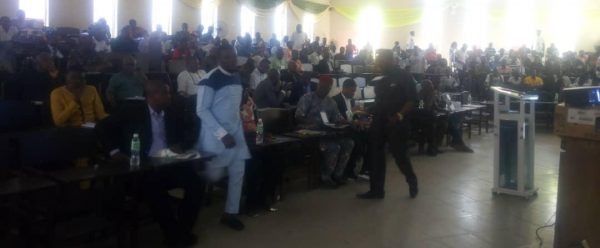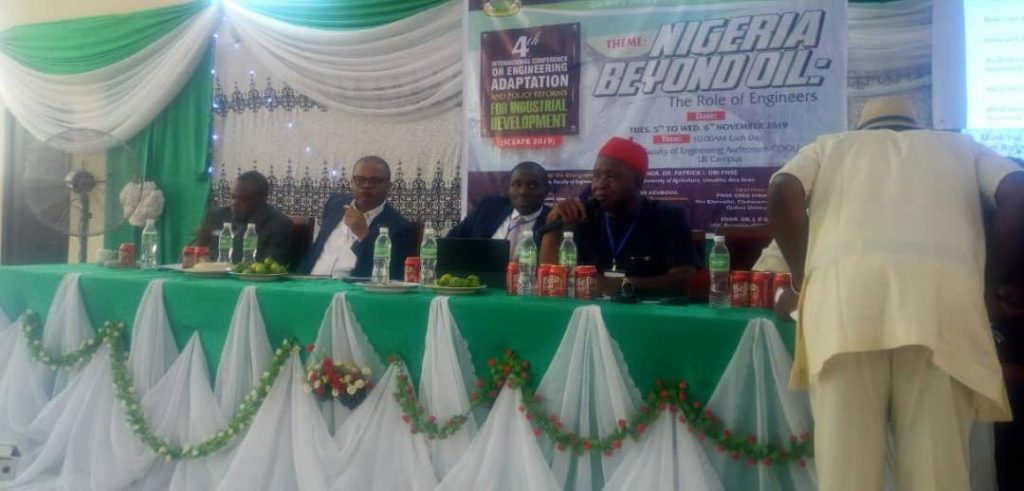The reality of Nigeria’s diversification from oil as the heart of her economic market has continued to draw national and international discourse over the last decade.
With the country ranked sixth among the top oil producing nations globally, and with her Gross Domestic Product estimated at four hundred and fifty billion dollars, analysts debate that Nigeria’s over-dependence on oil has done the country more harm than good, including the steady dwindling of her capital sectors, with as low as zero point zero three percent of the country’s GDP invested in education.
Thus at the 4th International Conference on Engineering Adaptation and Policy Reforms for Industrial Development at the Chukwuemeka Odumegwu Ojukwu University, Uli Campus, Anambra State, experts tried to deliberate on the alternative route to Nigeria’s income generation beyond oil.

Available statistics indicate that Nigeria remains Africa’s top oil and gas producing nation, with proven oil reserve of thirty-eight billion and daily production of one point nine to two point five million barrels of oil per day, and 192 trillion cubic feet of gas reserve, with daily production of seven point nine billion scf.
Sixty-five percent of federal government budget annually comes from oil with just ten percent adding to Nigeria’s Gross Domestic Product.
With the advancement in science, renewable and clean energy sources, including hydrogen, solar and wind, are fast replacing fossil fuel as preferred source of energy, with electric and hybrid cars now fashionable and cheaper and solar panels common, even in Nigeria.
With the above realities in mind, experts at the conference which has its theme as “Nigeria beyond Oil: The Role of Engineers,” sought to look at the problems of Nigeria’s mono-economic existence and provide a way out using advancing global master plan.
A keynote speaker at the conference and member representing Nnewi North, Nnewi South and Ekwusigo Federal Constituency at the House of Representatives, Engineer Chris Azubogu, said that the speedy and strategic investment and maximization of technological innovations with the resources generated from oil was a realistic way of bracing for the post-oil Nigeria.
Another keynote speaker, Engineer Bart Nwibe, who is an oil firm Chief Executive, stated that a situation where Nigeria spends thirty percent of her foreign exchange to import refined petroleum products for domestic consumption, portrays outright policy failure of the country’s national policies.
The Chairman on the occasion, and Dean Faculty of Engineering, Michael Okpara University of Agriculture, Umudike, Abia State, Engineer Dr Patrick Obi, in his speech, suggested that the importance between engineering and a country’s machineries of development must be harnessed for the benefits of that nation’s economy, but emphasized investment in education and technology to stand ahead of the over-depence on oil.
The Dean, Faculty of Engineering, Engineer Dr A. J. Atuchukwu, who represented the Deputy Vice-chancellor, in charge of the Uli Campus of the University, Professor Elis Idomobi, said the conference was first held in 2012 and added that this year’s theme was systematically chosen to further ignite interest among engineers in researching on alternatives to oil.
The international conference which ends today is divided into chaired sessions with various paper presentations that would aid the communiqué.





Comments are closed for this post.